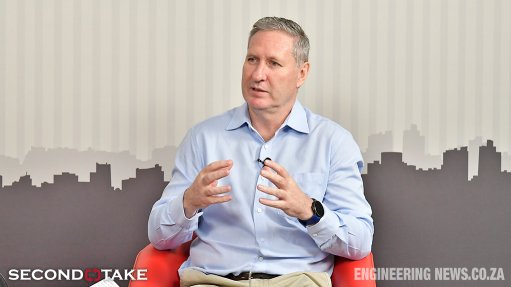Procurement evolves from a dog-eat-dog world to empowering underdogs, collaborating with suppliers, and caring for the environment and communities
This article has been supplied.
The ongoing evolution of procurement has seen the profession develop from a back-office function to a driver of business strategy. It has also shifted from a competitive dog-eat-dog arena - where the lowest price was the top prize - to one in which underdogs are developed, suppliers are partners, and care for the environment and communities is non-negotiable.
This is the contention of Debbie Tagg, chief operating officer of Smart Procurement, which has been connecting and educating procurement and inbound supply chain professionals across Africa for more than 18 years. “Our aim is to ensure that Africa keeps pace with the latest global trends and best practices in procurement through our communications platforms, training and development initiatives,” Tagg explains.
“This is an exciting and inspiring time to be in procurement, and we can expect even more in 2024 as procurement continues to evolve, as we keep challenging procurement traditions, and as more stakeholders recognise procurement’s power to do so much more than just get goods and services at the best price. Procurement has the power not just to add value for organisations, customers and suppliers, but to grow economies, to protect the environment, to uplift communities, and to drive real change in the world,” Tagg stresses.
“From a historic dog-eat-dog approach to get the lowest price at any cost, procurement today strives to uplift and empower underdogs like small businesses,” she says. “Small businesses are the backbone of South Africa’s economy, employing around 60% of the workforce and making a substantial contribution to the GDP. The number of small businesses in South Africa is rising, and with the right support, they can make an even greater impact on the country’s economy and employment rate.
“Procurement leaders are increasingly recognising the competitive advantages that small suppliers can bring to big businesses – with their drive, innovation and entrepreneurial flair. Localisation and supplier diversification strategies also form part of most organisation’s plans to manage risk and ensure resilience in today’s constantly volatile environment.
“Today’s astute procurement professionals collaborate with and even upskill their suppliers, to ensure that everyone wins. They understand the critical importance of collaboration and transparent communication with suppliers. Forging strong, long-term partnerships, understanding suppliers’ challenges, and sharing information is in everyone’s best interests. They consider diversity, equity, inclusion and sustainability in procurement practices and policies because today, procurement can be a force for good. Procurement functions are now geared to lead their organisations. They are at the heart of insightful data, demand influencing and sustainability,” she says.
Sustainable procurement practices and policies are topping the agendas of leading organisations, Tagg says. By 2024, sustainability reporting is expected to become a significant trend in the procurement industry.
The growing focus on risk management, collaboration, communication and sustainability means that technology is more important than ever in procurement. “Today’s procurement teams are data driven and need to have comprehensive, transparent, real-time views of sourcing and spending, as well as platforms that enable suppliers to access the requisite data. This means that technology skills are essential in procurement teams,” she notes.
While the procurement profession proved its mettle in navigating risk in recent years, it cannot rest on its laurels now because supply chain volatility has become the norm, Tagg asserts. “Procurement and supply chain practitioners played a pivotal role in ensuring that their organisations managed production and delivery disruptions in recent years. The volatility, economic pressures, shortages and risk will not abate in 2024. With the recent rise in global conflicts and climate events, and in South Africa, the ongoing electricity crisis, water outages, freight rail and ports crises, the chaos is set to continue. Procurement professionals must manage this by sharing knowledge, expanding their skills, building resilience, managing risk, and even using it as a competitive advantage.”
The growth of the Africa Supply Chain in Action (ASCA) Conference is testament to the growing recognition of the vital role played by supply chain and procurement. “ASCA 2023 saw almost 1 500 African supply chain and procurement professionals from 70 countries gather online to examine the skills, strategies and solutions needed to accelerate African economic development and growth in a post-pandemic new world,” Tagg reports.
As a result of its success since it was launched in 2020 by Smart Procurement and SAPICS (The Professional Body for Supply Chain Management), ASCA has become an annual rather than a biennial virtual conference. The fourth Africa Supply Chain in Action takes place on 13 March 2024.
Smart Procurement also hosts the annual Western Cape Procurement Conference, the Sustainability Summit and the Smart Procurement World Indaba. The latter is South Africa’s largest, longest-standing event for procurement and inbound supply chain professionals. The 18th annual Smart Procurement World Indaba takes place in Johannesburg from 9 to 12 September 2024. Tagg urges all role players in supply chain and procurement to attend. She contends that procurement’s evolution will continue as the profession shifts and pivots with the ever-changing, uncertain, disruption-fraught business environment. “We need talented, skilled, knowledgeable and qualified procurement professionals more than we ever have, to rise to the challenges, succeed and add value in this exciting, dynamic and increasingly important profession.”
Comments
Press Office
Announcements
What's On
Subscribe to improve your user experience...
Option 1 (equivalent of R125 a month):
Receive a weekly copy of Creamer Media's Engineering News & Mining Weekly magazine
(print copy for those in South Africa and e-magazine for those outside of South Africa)
Receive daily email newsletters
Access to full search results
Access archive of magazine back copies
Access to Projects in Progress
Access to ONE Research Report of your choice in PDF format
Option 2 (equivalent of R375 a month):
All benefits from Option 1
PLUS
Access to Creamer Media's Research Channel Africa for ALL Research Reports, in PDF format, on various industrial and mining sectors
including Electricity; Water; Energy Transition; Hydrogen; Roads, Rail and Ports; Coal; Gold; Platinum; Battery Metals; etc.
Already a subscriber?
Forgotten your password?
Receive weekly copy of Creamer Media's Engineering News & Mining Weekly magazine (print copy for those in South Africa and e-magazine for those outside of South Africa)
➕
Recieve daily email newsletters
➕
Access to full search results
➕
Access archive of magazine back copies
➕
Access to Projects in Progress
➕
Access to ONE Research Report of your choice in PDF format
RESEARCH CHANNEL AFRICA
R4500 (equivalent of R375 a month)
SUBSCRIBEAll benefits from Option 1
➕
Access to Creamer Media's Research Channel Africa for ALL Research Reports on various industrial and mining sectors, in PDF format, including on:
Electricity
➕
Water
➕
Energy Transition
➕
Hydrogen
➕
Roads, Rail and Ports
➕
Coal
➕
Gold
➕
Platinum
➕
Battery Metals
➕
etc.
Receive all benefits from Option 1 or Option 2 delivered to numerous people at your company
➕
Multiple User names and Passwords for simultaneous log-ins
➕
Intranet integration access to all in your organisation

















